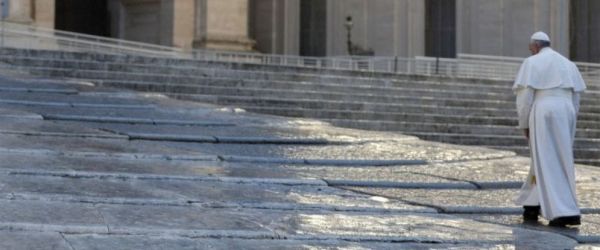Today’s first reading, from the Book of Wisdom speaks of the persecution of the righteous, those whose “mere presence” annoys the ungodly. The ungodly are described as those who oppress the poor, who have no compassion for the widow and show no respect to the elderly (cf. 2:17-20). The ungodly claim to believe that “power is the norm of justice”. They dominate the weak, use their power to impose a way of thinking, an ideology, a prevailing mindset. They use violence or repression to subject those who simply by their honest, straightforward, hardworking and companionable everyday life show that a different kind of world, a different kind of society, is possible. The ungodly are not content with doing anything they like, giving into their every whim; they do not want others, by doing good, to show them up for who they are. In the ungodly, evil is always trying to destroy good.
Seventy-five years ago, this nation witnessed the final destruction of the Vilnius Ghetto; this was the climax of the killing of thousands of Jews that had started two years earlier. As we read in the Book of Wisdom, the Jewish people suffered insults and cruel punishments. Let us think back on those times, and ask the Lord to give us the gift of discernment to detect in time any recrudescence of that pernicious attitude, any whiff of it that can taint the heart of generations that did not experience those times and can sometimes be taken in by such siren songs.
Jesus in the Gospel tells us of a temptation of which we have to be very careful: the desire for primacy and domination over others, which can dwell in every human heart. How often has it happened that one people considers itself superior, with greater acquired rights, with more privileges needing to be preserved or gained. What is the antidote that Jesus proposes when this impulse appears in our heart or in the heart of any society or country? To be the last of all and the servant of all; to go to the place where no one else wants to go, where no one travels, the furthest peripheries; to serve and come to know the lowly and the rejected.
If power had to do with this, if we could allow the Gospel of Jesus Christ to reach the depths of our lives, then the “globalization of solidarity” would be a reality. “In our world, especially in some countries, different forms of war and conflict are re-emerging, yet we Christians remain steadfast in our intention to respect others, to heal wounds, to build bridges, to strengthen relationships and to “bear one another’s burdens” (Gal 6:2)” (Evangelii Gaudium, 67).
Here in Lithuania, you have a hill of crosses, where thousands of people, over the centuries, have planted the sign of the cross. I ask you, as we now pray the Angelus, to beg Mary to help us all to plant our own cross, the cross of our service and commitment to the needs of others, on that hill where the poor dwell, where care and concern are needed for the outcast and for minorities. In this way, we can keep far from our lives and our cultures the possibility of destroying one another, of marginalizing, of continuing to discard whatever we find troublesome or uncomfortable.
Jesus puts a little child in our midst, at the same distance from each of us, so that all of us can feel challenged to respond. As we remember the “yes” spoken by Mary, let us ask her to make our “yes” as generous and fruitful as hers.
[Pope Francis, Angelus 23 September 2018]












